Early filmmakers showed the world that a movie director could be an artist. But not every movie director. Because part of auteur theory is knowing how to define auteur directors. Before auteur theory, Directors were important, but the other factors were still more significant. Stars. Studios. Producers.
People referred to a ‘Clark Gable movie’ for example, because in the 1930’s stars ruled the day. Auteur theory came in the early 1950’s, and it changed all that. It shifted some power away from actors, producers, and studio moguls. It shifted power towards directors. Towards specific types of directors. And it ultimately led to a kind of director-crisis. We’ll get to that later…First, let’s define auteur and auteur theory.
auteur definition
What is Auteur Theory?
Auteur Theory is the idea that the director is the author and primary creative force behind a movie.
At first, it seems strange to call the director of the film the "author."
After all, didn't someone else write the screenplay for it? Why isn't the screenwriter considered the film's author? Well... we all know how Hollywood treats its writers…
Another reason is that scripts often change. So writers come and go.Casablanca script, considered one of the greatest movies of all time, has five credited writers. At least one more uncredited.
Film credits can be their own minefield to navigate, so if you want to know more on that check out this post on understanding film credits.
Back to “authorship”...
As much as everyone depends on the quality of a script the end product of a movie is a result of the execution of the actual film production.
And the execution?
That often comes down to the director. The director will be the one helping each department and crew member to execute the script.
So if you ask who made a movie, the answer will invariably be:
The Director.
Auteur Theory Made Practical
Learn the directing techniques used by the greats
Create works like these iconic auteur directors. Explore practical directing tips you can immediately put into action on your next project.
Explore More Auteur Directors
Auteur Directors
Not just any director...
Auteur theory states that the director is more than a conduit for the script. More than a conduit for the project.
The auteur director shapes every part of the movie. Their fingerprints are visible on every aspect.
Many directors, in fact, most, are NOT auteurs. Not according to Auteur Theory, anyway. There is a particular set of rules for defining a director as an auteur.
The auteur of a film is the film's true artist. The visionary behind it. The prime mover. But you can't have that credit just by being the movie's director.
Before we get into the rules, let's back up a moment. Who created all this thing in the first place?
Related Posts
origins of auteur cinema
Where does it come from?
Auteur theory comes from a French publication in 1954 of Cahiers du Cinema.
Cahiers definition is "book", or "notebook". The title loosely translates as "notes on cinema." The publication had been around since 1951. Then in 1954 Francois Truffaut, yes the soon to be legendary French director, wrote a scathing piece on the state of French movies at the time.
He held up as a far superior example, certain American films, and their directors.
In particular, he championed Alfred Hitchcock and Howard Hawks. It's no accident that a future filmmaker was the one to get the auteur theory ball rolling. Peter Bogdanovich would later spend years interviewing the great directors, celebrating auteur theory. He went on to make his movies.
American critic Andrew Sarris was the one who referred to Truffaut's manifesto as "Auteur Theory."
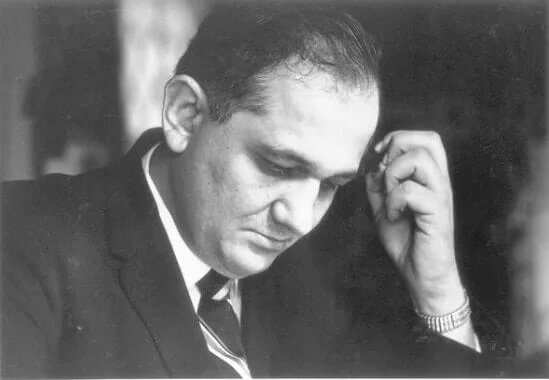
Film critic Andrew Sarris helped create the auteur definition
Truffaut famously claimed "there are no good or bad films. Only good or bad directors." Why?
The theory is that a director isn't necessarily a film artist. But an auteur is.
AUTEUR DEFINITION
What is an Auteur?
While the auteur definition in french is literally “author”, in the dictionary it now reads:
“An auteur is a filmmaker whose individual style and complete control over all elements of production give a film its personal and unique stamp.”
Creating meaning that only he can, using the tools of filmmaking, through the lens of his mind and personality.
A bad movie from an auteur was at least the work of an artist. The excellent film from an average director was not.
Good news Tommy Wiseau!
So why Hitchcock and Hawks? There were plenty other prominent name directors at the time.
Bigger, in fact. Even more celebrated.
The quick answer:
Hitchcock and Hawks seemed to have signature elements to all their movies.
In many ways Howard Hawks was the prototypical auteur.
Which brings us to this question:
auteur filmmaker requirements
What are the rules of Auteur Theory?
When Andrew Sarris took the auteur theory to the next level, he laid out three basic rules:
1. Basic Competency
"A great director has to at least be a good director." Which is to say that the director's movies must be technically competent.
You can't have an auteur who's movies fail to clear some of the fundamental hurdles.
Sorry, Tommy Wiseau...
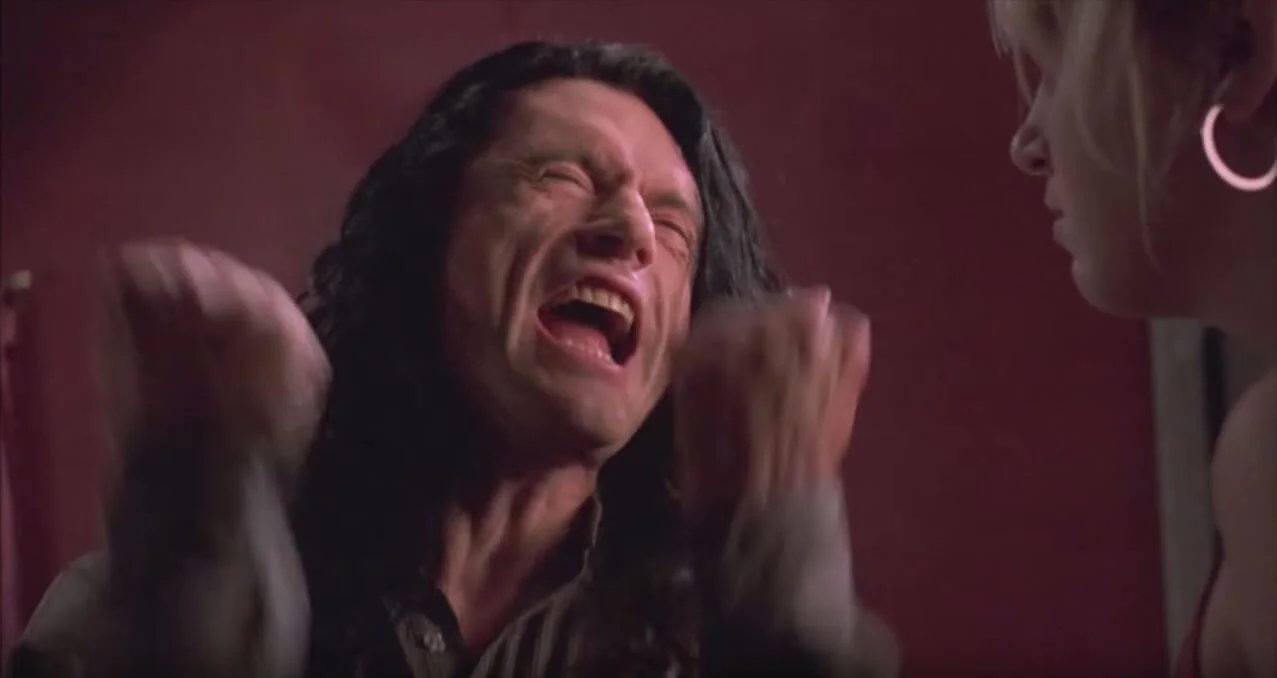
2. Signature Style
"Over a group of films a director must exhibit certain recurrent characteristics of style which serve as his signature."
This one is pretty self-explanatory. If a director isn't doing this, then he's not an auteur.
You need to know it's Howard Hawks just by looking at it. Hawks is a great example because he made movies across genre. Hell, he practically defined every genre.
The gangster genre with the original Scarface.
Romantic comedy with Bringing Up Baby.
Westerns with Red River.
Adventure with To Have and Have Not and Only Angels Have Wings...
Hawks' oeuvre is one genre-defining classic after another. The common thread to each? The Hawks signature elements.
It’s also interesting to note that Howard Hawks was not celebrated by his peers, this piece goes a little deeper on how auteur theory changed the perception of Hawks and why.
3. Interior Meaning
"Interior meaning is extrapolated from the tension between a directors personality and his material."
Hmm. Huh?
It seems what Sarris meant here was that the director's innermost soul must come through in the movie.
One of the only ways to know that is what the director went through to get the movie made. Did he have to fight hard against a film studio for certain things? Or against the script? Are there specific moments that go beyond a familiar stylistic flourish? Moments that feel more like a little piece of that filmmaker up on the screen?
An example of this might be a moment distinct to the director, but that doesn't belong in the movie. An odd thing to celebrate... but more on that later...
Interior meaning is a tricky thing to get at with a director. How do we know what strange elements they came up with… or where odd little accidents?
That's the LAST rule, or guideline, to defining auteur directors.
That vagueness is what leaves open the great debate that can rage on and on...
best auteur directors
Who are Greatest auteur directors?
Think of it as a debate over who is the greatest one-on-one basketball player. Some people will say it's Michael Jordan. Some younger people might say Lebron James.
But the problem with those types of debates is that they cross an uncrossable distance of time and space. We can never see prime athletes matched up against one another across eras.
But...
We can judge great movies, from great directors at the height of their powers, against one another.
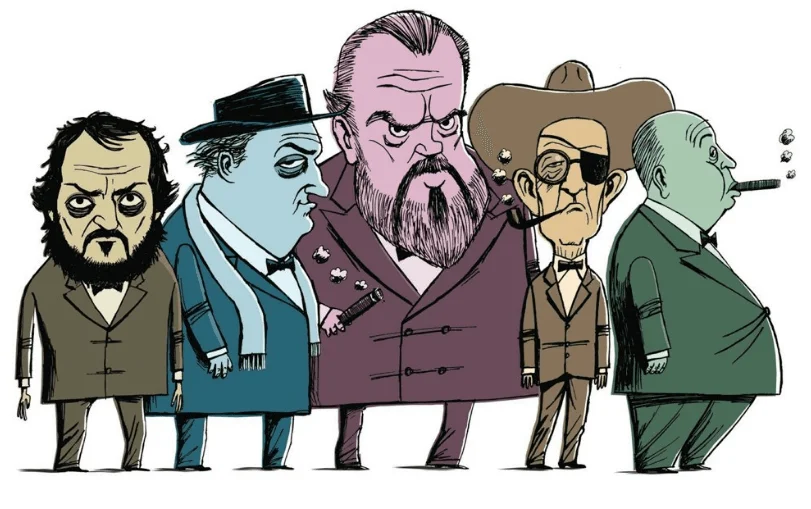
Auteur directors? Kubrick, Fellini, Welles, Ford, and Hitchcock
How does Spielberg stack up against Hawks? Scorsese vs. Ford?
Let the debates rage on!
Who's the better auteur Hitchcock or Tarantino?
Well if you ask me, a writer-director doesn’t really fit within the auteur definition.
Why? Isn't a writer-director a much more obvious choice for an auteur?
Maybe.
But the strictest auteur definition applies to directors only, as they are the ones imbuing a written source with a unique artistic interpretation. In other words, an auteur director uses only their directing skill to create meaning.
Related Posts
Auteur or noteur?
Who are the best auteur directors?
So Quentin Tarantino really isn’t an "auteur" in a classic sense. But Steven Spielberg could be. This goes against the assumption that an auteur is "artsy" versus a more commercial director like Spielberg who churns out audience-friendly mainstream fare.
To be clear: Why is Spielberg more an auteur?
Because whether he starts with a script about dinosaurs or the Holocaust, his stamp will be all over it.
Tarantino movies conceives of all his films on the page first. So, of course, his stamp is all over it.
This probably won't make Tarantino very happy. But it's the truth if you consider the classical source of the term.
Although, if you ask most people of Tarantino has a signature directing style, the answer would be a resounding "YES." But if you dig deeper, you could make the case that Tarantino's signature style is really found in the writing — and he upholds this writer's vision when directing.
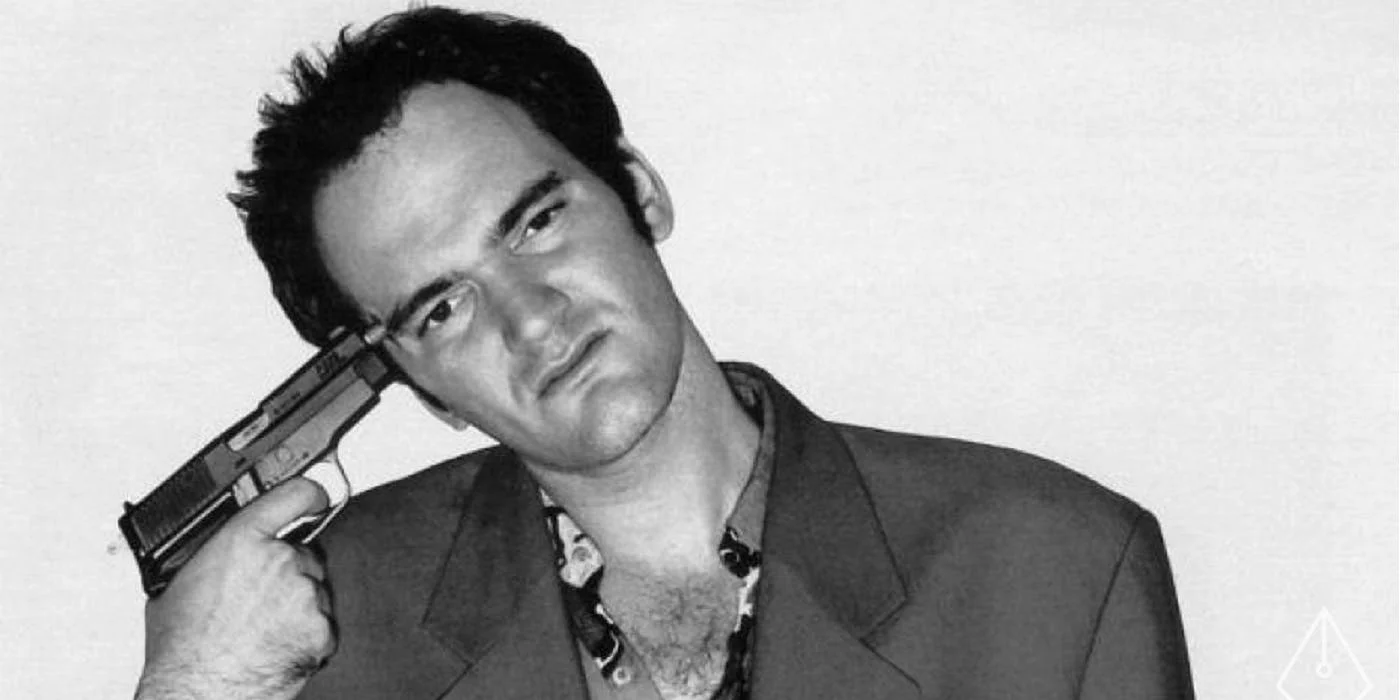
It’s okay Quentin! We still love you even if you’re not a film auteur!
It's also part of the auteur backlash. Because this distinction is a bit silly.
Billy Wilder is one of the greatest filmmakers of all time. He made movies in every genre, same as Hawks. His films have his signature qualities.
Wilder co-wrote most of them, if not all of them. In fact, he started out as a writer. This is part of why he was such a great filmmaker. You could make the case that he was a more "complete" storyteller than Hawks.
What about Paul Thomas Anderson? Or Wes Anderson?
How can Hawks and Spielberg be on a auteurism scale that excludes Wilder and Tarantino?
Hmm. This type of endless coffee shop debate is what makes auteur theory so interesting and timeless.
Related Posts
AUTEUR THEORY HATERS
Why do some people hate auteurs?
Many people are not fond of the reductionist qualities of the auteur definition, or any similar theories.
Critic Pauline Kael led the charge against auteur theory. She and Sarris went back and forth over the subject.
Not before she poked some large holes in it.
John Huston, for example, was an excellent director of Hollywood's golden age who "gets no love" from the auteur theories and theorists.
Instead, he's passed off as having made actors films. Kael dismisses this as being arbitrary.
Other problems with the theory are that it seems to champion lesser films. A bad movie by a great director is notable because it has some of his signature elements.
Another quality that has come under fire is the idea of the interior meaning.
If a director forces his 'style' upon a movie where it might not belong, is he a "good" director?
The auteur theory says yes.
DEFINING AUTEUR THEORY
Auteur theory endgame
The auteur theory was part and parcel of the first generation of cinephiles.
The study of film and film directors became more and more popular. Film schools sprung up.
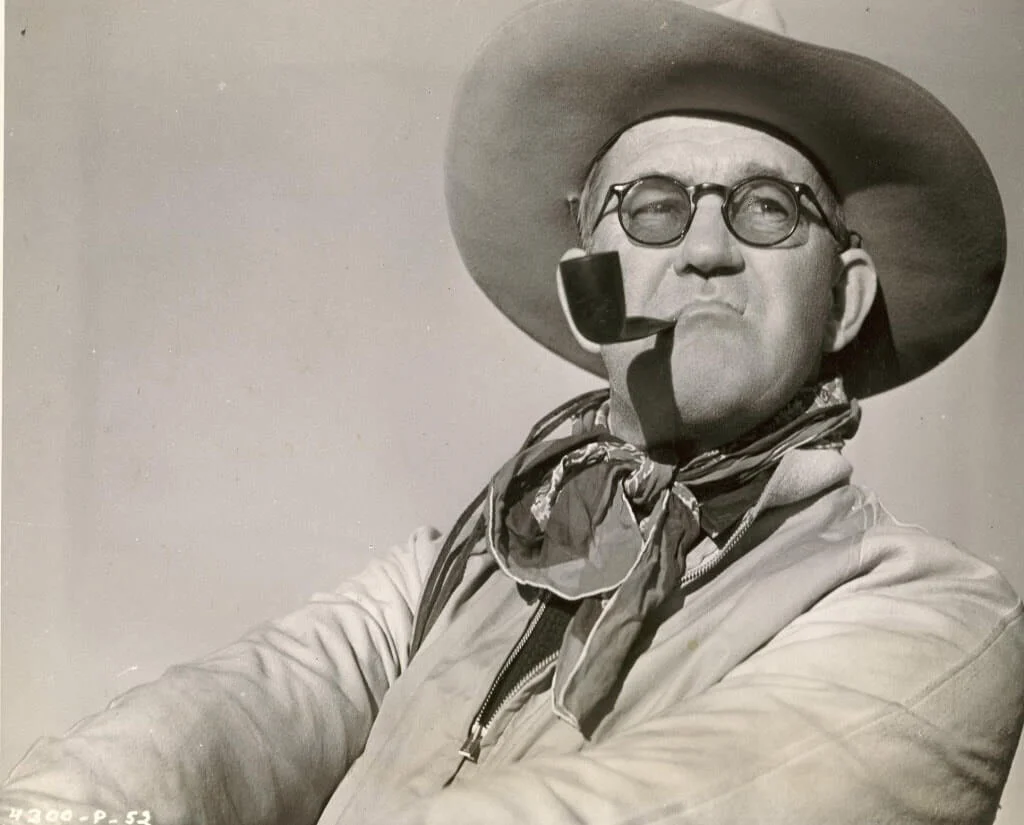
This is John Ford. Does he look like he cares about auteur theory examples?
Early directors like Hawks and John Ford, saw what they did as something of a trade. Not an art form.
When Peter Bogdanovich followed them around with a notepad, they thought he was crazy.
The generation of movie fans that became directors started churning out the movies of the 1970's that would become classics.
Auteur theory breaking point
Auteur theory consequences?
Things reached a breaking point. Studios started handing these auteurs huge budgets, and some of the results were catastrophic.
After The Deer Hunter director Michael Cimino got a blank check from United Artists.
The auteur theory was starting to pay big.
But Cimino's attention to detail left the film production in ruin. It bankrupted the studio. United Artists was sold to MGM.
Cimino's career never recovered.
Meanwhile, something else was happening in film. Other members of that generation made the first true blockbusters...Jaws in 1975 and Star Wars in 1977 showed Hollywood a better way to make money.
Auteur theory changed the way people think of directors and movies.
It went to some extremes at times, but the fundamental notion that a filmmaker is an artist comes directly from auteur theory. The idea that studying a director and his or her work can make you better also came out of it.
But there is a limit to what the Director's power should be. Without checks and balances in place, things can veer into disaster.
A production is a group effort. The finished product is the result of coordinating many artists and technicians. Boiling it down to one person and placing their influence above everyone else makes for bad movies.
The original auteurs themselves would agree.
Up Next
How to easily copyright a script
Auteur theory also applies to writers (or at least it should). And that means protecting your original written works. Next up, we’ll discuss the easiest and most ironclad way to how to copyright your scripts.
Do you want claim credit over your own work? Then make sure to copyright your script ASAP. We'll show you how.
Up Next: How to Copyright a Script →
Showcase your vision with elegant shot lists and storyboards.
Create robust and customizable shot lists. Upload images to make storyboards and slideshows.
